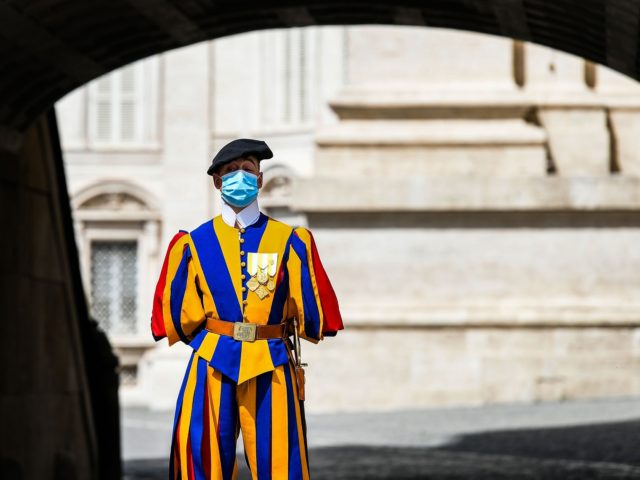ROME — The Vatican released a joint document with the World Council of Churches (WCC) Thursday calling for greater attention to the environment in “a post-COVID-19 world.”
“The human misery associated with the COVID-19 pandemic is taking place amid the broader context of the suffering of this planet,” notes the text, which bears the title “Serving a Wounded World in Interreligious Solidarity: A Christian Call to Reflection and Action During COVID-19.”
The coronavirus health crisis can be seen as “a harbinger of future crises relating to climate change and the assault on biodiversity,” the document declares. “We urgently need an ecological conversion of attitudes and actions to care more effectively for our world, paying attention to the groaning of the creation.”
According to the Vatican website, the document is meant to offer “a Christian basis for interreligious solidarity that can inspire and confirm the impulse to serve a world wounded not only by COVID-19 but also by many other wounds.”
The text contains an entire section devoted to the virtue of “hope” but curiously omits any reference to hope in eternal life, but points only to “planetary responsibility” and a “better world.”
Whereas in the plagues of past centuries, the Christian churches embraced their mission of preparing souls for death and judgment, along with caring for their bodies, the current document is devoid of any mention of salvation or eternal life.
The document “recognizes the current context of the pandemic as a time for discovering new forms of solidarity for rethinking the post-COVID-19 world,” the Vatican states, but it fails to recognize the pandemic as an opportunity to reconsider human mortality and the distinct contribution of Christianity to understanding the meaning of earthly existence.
As a result, all of the recommendations offered to the faithful moving forward are immanent in nature, since a dimension of transcendence seems to have been intentionally excised from all consideration.
The text does make frequent reference to the gospel parable of the Good Samaritan and the need to care for one another.
“This parable challenges Christians to think about how to live in a world wounded by the COVID-19 pandemic, and by the scourge of religious intolerance, discrimination, racism, economic and ecological injustice and many other sins,” it declares.
To its credit, the joint declaration does recognize the far-reaching negative effects of global lockdowns, which extend far beyond the effects of the disease itself.
“Alongside the millions who have been infected physically, many more have been affected psychologically, economically, politically and religiously; all have been deprived of public worship,” the text notes.
“People have struggled to cope with death and grief, especially with the inability to be with their loved ones at their deathbeds, and perform their last rites and funerals in a dignified manner,” it adds.
“The lockdown has brought the world economy to its knees, and global hunger could double due to this catastrophe,” the document states. “It has also contributed to an increase in domestic violence. The requirements of physical and social distancing have meant isolation for many people. Despair, anxiety and insecurity have come to dominate human lives.”
The document concludes with a series of recommendations, including “bearing witness to suffering,” promoting a “culture of inclusivism,” nurturing “solidarity through spirituality,” teaching the clergy to “foster empathy,” and creating “spaces for dialogue.”

COMMENTS
Please let us know if you're having issues with commenting.